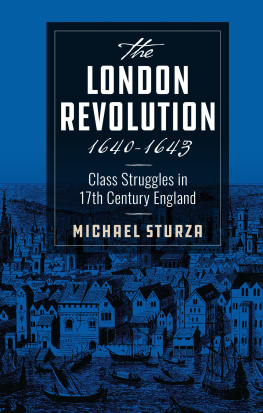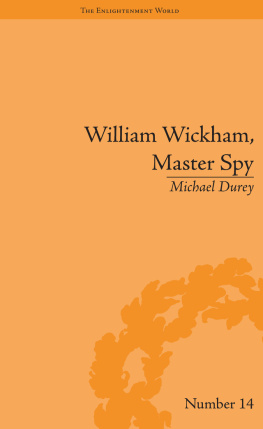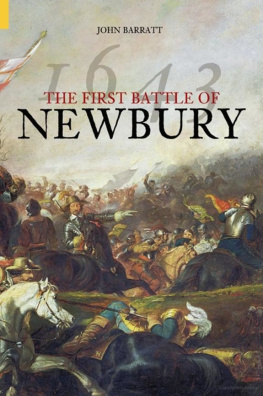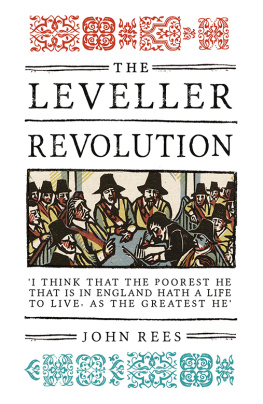Michael Sturza - The London Revolution 1640-1643
Here you can read online Michael Sturza - The London Revolution 1640-1643 full text of the book (entire story) in english for free. Download pdf and epub, get meaning, cover and reviews about this ebook. year: 2022, publisher: The Mad Duck Coalition, genre: Politics. Description of the work, (preface) as well as reviews are available. Best literature library LitArk.com created for fans of good reading and offers a wide selection of genres:
Romance novel
Science fiction
Adventure
Detective
Science
History
Home and family
Prose
Art
Politics
Computer
Non-fiction
Religion
Business
Children
Humor
Choose a favorite category and find really read worthwhile books. Enjoy immersion in the world of imagination, feel the emotions of the characters or learn something new for yourself, make an fascinating discovery.
- Book:The London Revolution 1640-1643
- Author:
- Publisher:The Mad Duck Coalition
- Genre:
- Year:2022
- Rating:3 / 5
- Favourites:Add to favourites
- Your mark:
- 60
- 1
- 2
- 3
- 4
- 5
The London Revolution 1640-1643: summary, description and annotation
We offer to read an annotation, description, summary or preface (depends on what the author of the book "The London Revolution 1640-1643" wrote himself). If you haven't found the necessary information about the book — write in the comments, we will try to find it.
The London Revolution 1640-1643 — read online for free the complete book (whole text) full work
Below is the text of the book, divided by pages. System saving the place of the last page read, allows you to conveniently read the book "The London Revolution 1640-1643" online for free, without having to search again every time where you left off. Put a bookmark, and you can go to the page where you finished reading at any time.
Font size:
Interval:
Bookmark:
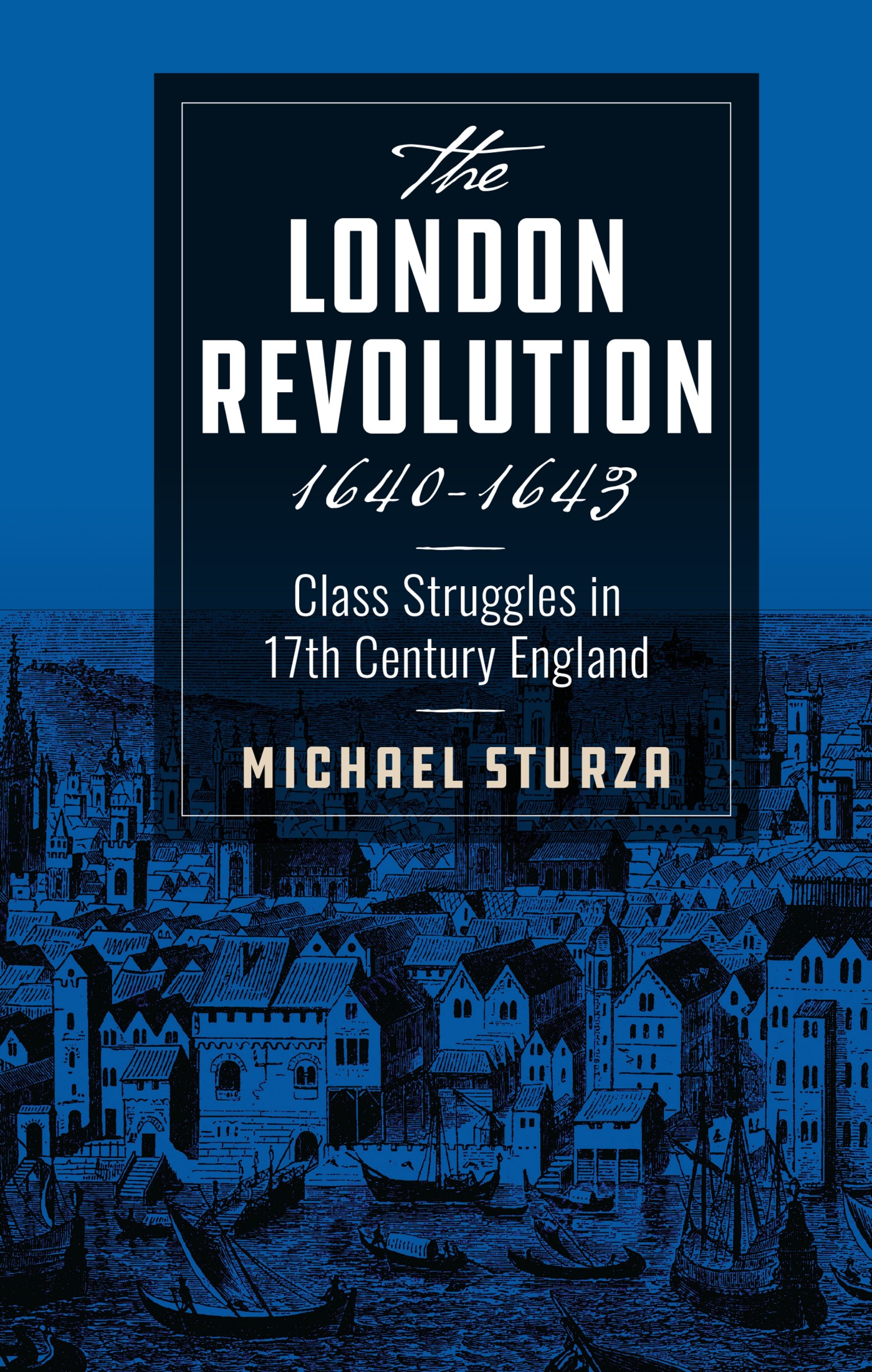
Praise for The London Revolution 1640-1643
Feisty, fearless and fascinating: this book spotlights Londons revolutionary upheavals at the start of Britains seventeenth-century Civil War; it shows how Londons revolutionary role has been too often downplayed; and it explains its long-term significance for later generations. Michael Sturza will provoke many debates and a good thing too!
Penelope J. Corfield, emeritus Prof. London University; Fellow of the Royal Historical Society (UK); and President of the International Society for Eighteenth-Century Studies
Michael Sturza brings the London Revolution 1640-1643 to life a welcome tonic for tough times. one is reminded of the complexities of social change and the essential role of class struggle 17th century England has much to teach us relevant to the 21st century. Sturza is a vital addition to the canon. An excellent reader for students and the general public alike.
Marvin Surkin, specialist in comparative urban politics and social change and co-author of Detroit: I Do Mind Dying
A passionate, Marxist analysis exploring the role of structural and socio-economic problems in radicalizing people on the eve of the English civil war. Combing high and low politics, Sturza stresses the importance of class conflict and reminds us just how revolutionary the English revolution was.
Tim Harris, editor of Studies in Early Modern Cultural, Political and Social History series and The European Legacy journal
A richly detailed and documented contribution! Michael Sturza not only refutesconservative revisionist historiansbut provides significant evidence of how organized and militant social forcesplayed a decisive role in the end of British feudalism. Sturza demonstrates the value and efficacy of historical materialism for understanding thedimensions of social change and revolution.
Burton Lee Artz, director of the Center for Global Studies at Purdue University Northwest
The London Revolution opens critically important new ground for understanding the English Revolution as a bottom up bourgeois revolution. Sturza picks up where Christopher Hill left off.
Robert Ovetz, editor of Workers' Inquiry and Global Class Struggle: Strategies, Tactics, Objectives and author of When Workers Shot Back: Class Conflict from 1877 to 1921
Michael Sturzas book is an important contribution to correcting the distortions of modern historians about the nature of the English Civil War of 1641-49. Sturza concentrates on the events and movements in Englands capital, London, and delivers a compelling analysis from a Marxist perspective.
Michael Roberts, author of The Great Recession a Marxist view ; The Long Depression ; Marx 200: a review of Marxs economics ; and co-editor of World in Crisis
No-one doubts the French Revolution, but the English Revolution remains contentious. Sturza shows that, though the English was as messy as the Guillotine was precise, capitalisms rise resulted in feudalisms beheading in the tumultuous days of the 1640s.
Steve Keen, recipient of the Revere Award from RWER, co-author of "The Incoherent Emperor: A Heterodox Critique of Neoclassical Microeconomic Theory", and author of Debunking Economics
There is no more important question for historians and social theorists than determining the driving force behind modern social change. Michael Sturzas delightful and concise work, The London Revolution [1640-1643] shows definitively that class was the driving force setting the stage for 1689. This is gripping history, fast-paced, well-written, and solidly based in theory and evidence.
Joseph Varga, president of the Working Class Studies Association
The London Revolution 1640-1643 offers a fresh and well-documented perspective on existing scholarship, bringing its portrait of the English Revolution sharply to life. Sturza illustrates how the protests and street battles in the early 1640s foreshadowed the Civil War[and] how the economic struggle against feudalism in England was inseparable from the ideological struggle.
Alan Wallis, reviewer for Marx and Philosophy Review of Books
In a refreshingly polemical call to arms for Marxist historiography, Michael Sturza convincingly argues that mid-seventeenth century class struggle in London decisively shaped the English Revolution[and] the great historical transformation from feudalism to capitalism.
Andrew Hartman, author of A War for the Soul of America: A History of the Culture Wars and Karl Marx in America .
Exceptionally well organized and presented, [The London Revolution 1640 - 1643] is a particularly well written work of exemplary scholarship.
Midwest Book Review
Complete commentary available at thmaduco.org





Table of Contents
PREFACE
And thus I hope even British respectability will not be overshocked if I usethe term historical materialism, to designate that view of the course of history which seeks the ultimate cause and the great moving power of all important historic events in the economic development of society, in the changes in the modes of production and exchange, in the consequent division of society into distinct classes, and in the struggles of these classes against one another.
~Frederick Engels
The diminishing band who continue to write about the period have largely discarded the grand narratives of liberty and revolution. They no longer believe that two sides in the war were divided by great differences, whether social or ideological. Clear-cut interpretations of the conflict have given way to a complex and confusing story of contingency, accident, and unintended consequences.
~Keith Thomas
T he history of the English Revolution, Civil War, unsettled Common wealth and degenerating Protectorate took place during the years 1640-1660. The period remains a divisive line in English history, despite less notice being taken of it in British schools and the popular press than was the case not so long ago. Just as the effects and controversies of the American Civil War are still extant, those of the English Civil War in Britain (and also Ireland) remain alive today. The past is never dead, William Faulkner famously wrote, its not even past. By abolishing slave labor in favor of capitalist wage labor, the defeat of the Southern plantation owners made the U.S. Civil War the last progressive bourgeois revolution to occur. Two hundred years earlier, the English Revolution destroyed the absolutist feudal political system in the British Isles. The epoch of capitalist society under the rule of the bourgeois class had begun, even if only tentatively. The issues at stake in the struggles of 1640 and after were not only whether sovereignty, that is, political power, resided in the monarch or Parliament; or whether there would be freedom of religion, how much and for whom; but whether the entire social and political system would be modified to allow for a greater possibility of better living for the masses, and the greater democracy needed to achieve it.
Font size:
Interval:
Bookmark:
Similar books «The London Revolution 1640-1643»
Look at similar books to The London Revolution 1640-1643. We have selected literature similar in name and meaning in the hope of providing readers with more options to find new, interesting, not yet read works.
Discussion, reviews of the book The London Revolution 1640-1643 and just readers' own opinions. Leave your comments, write what you think about the work, its meaning or the main characters. Specify what exactly you liked and what you didn't like, and why you think so.

